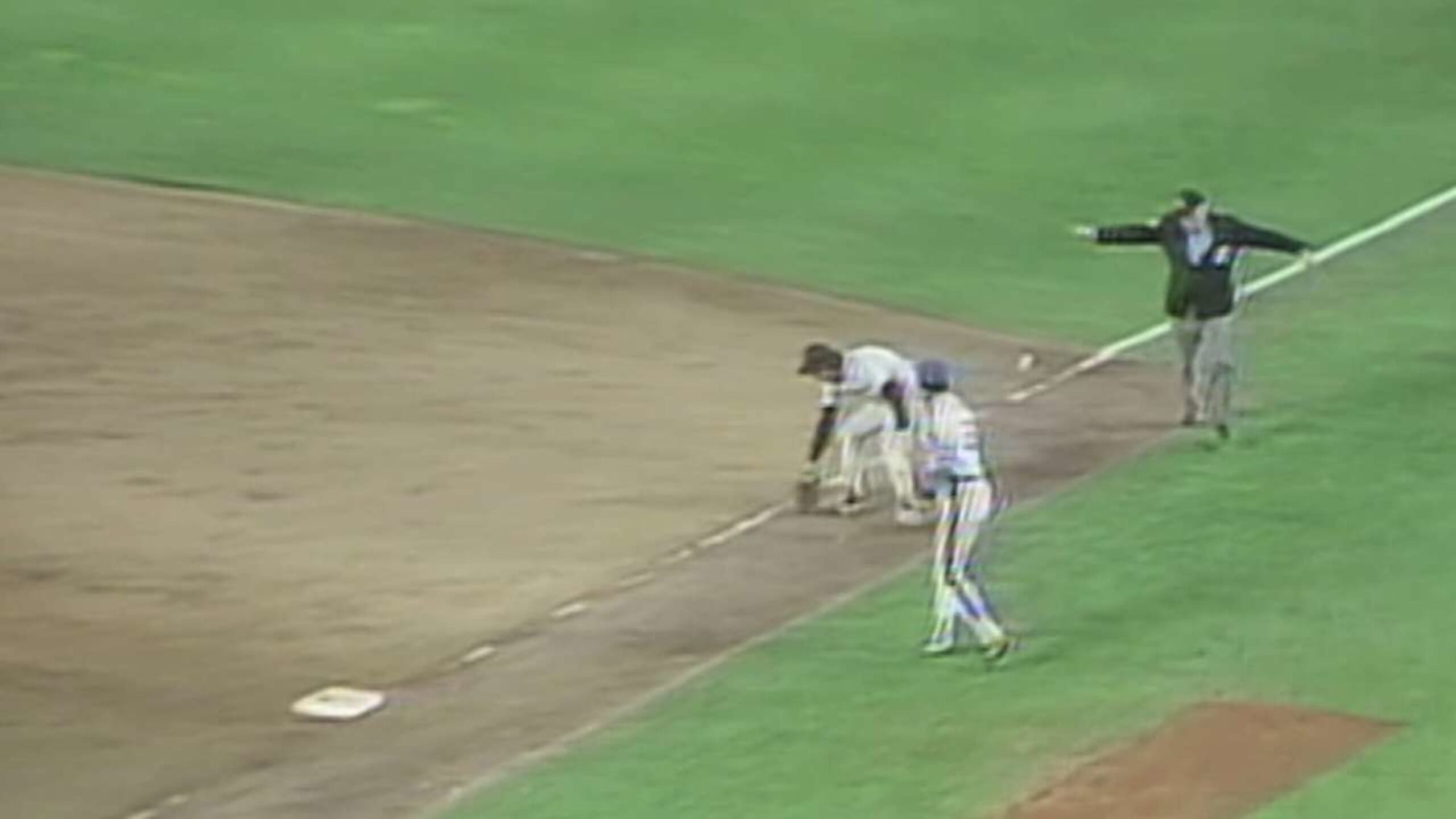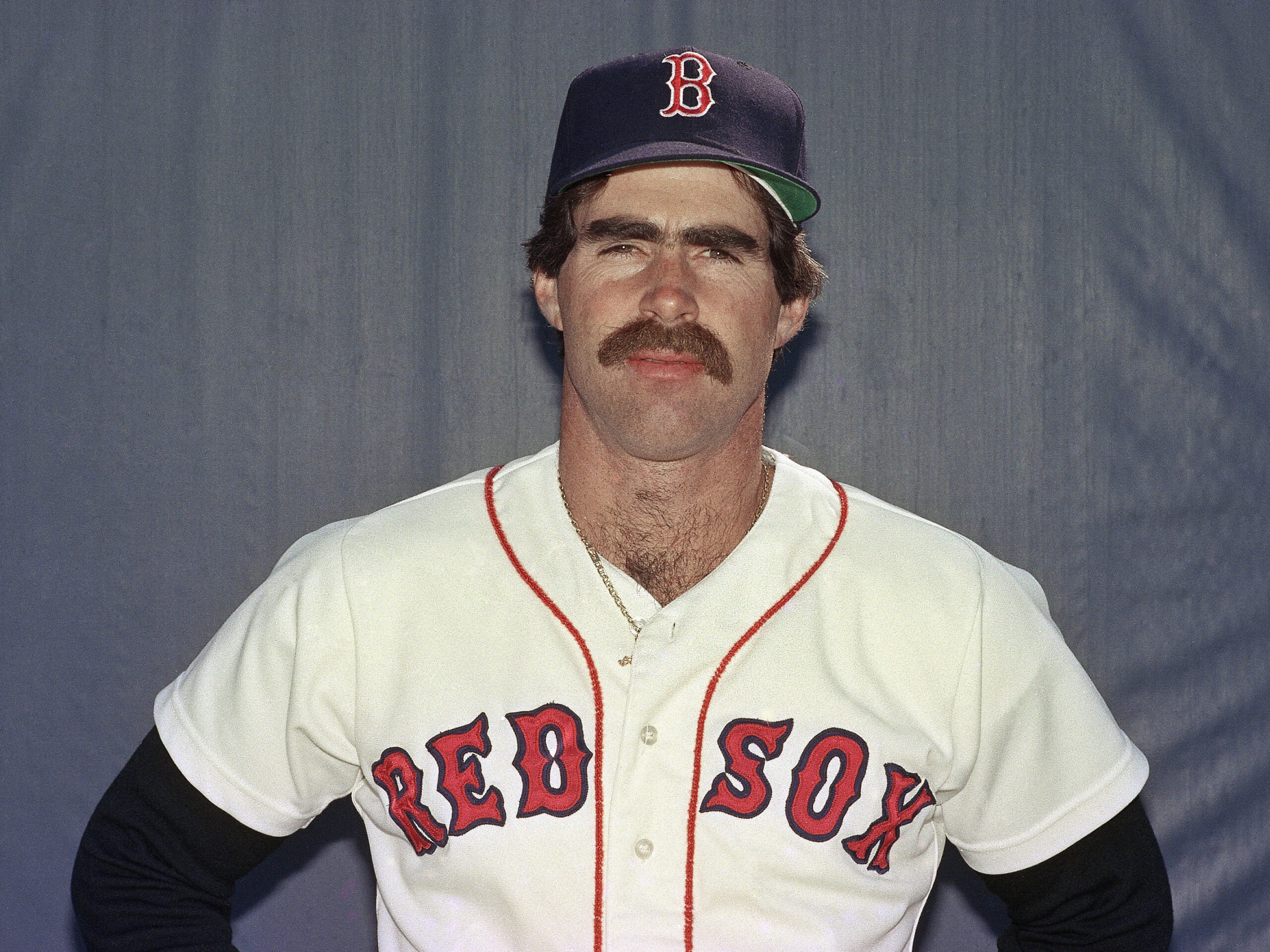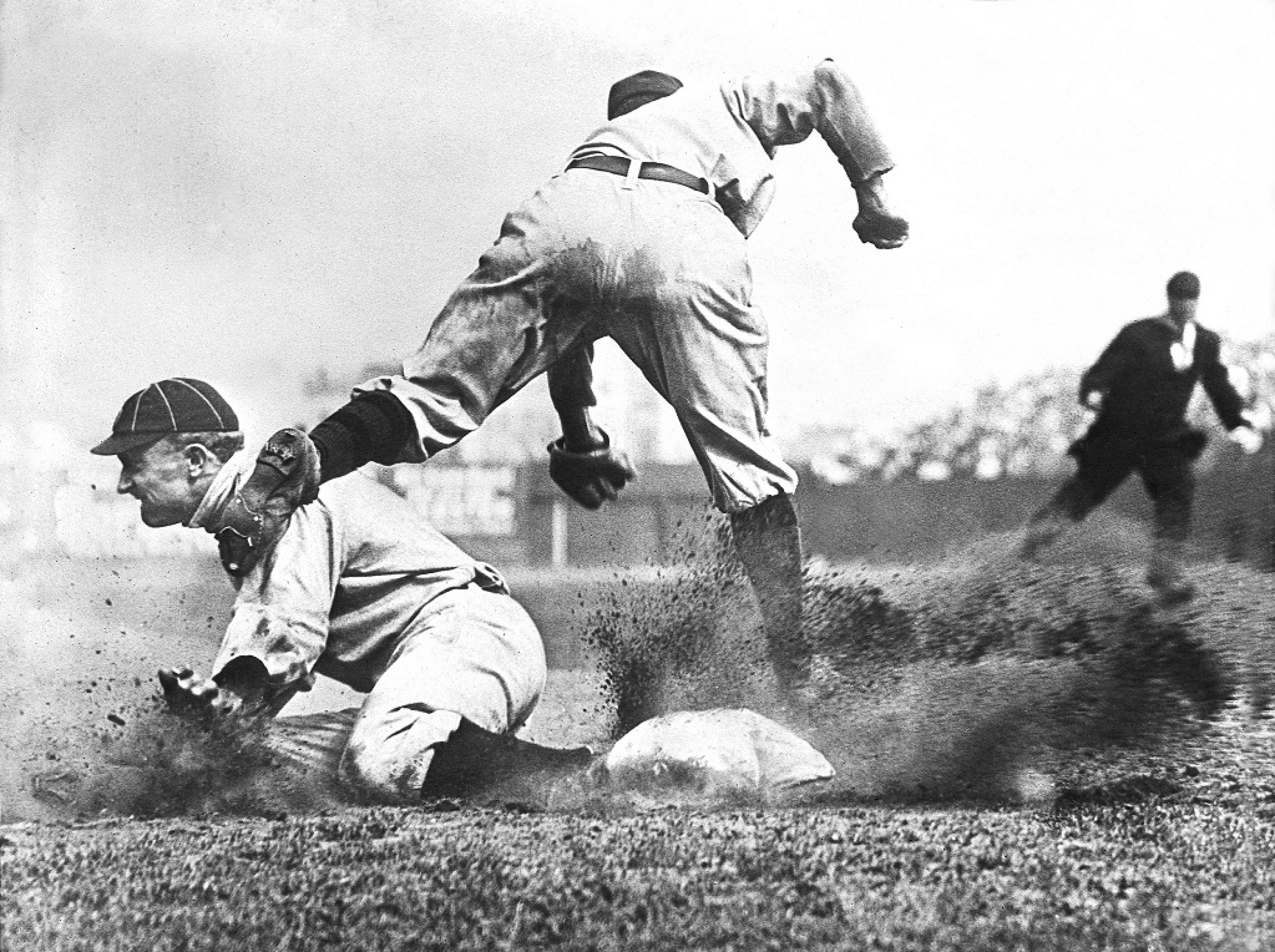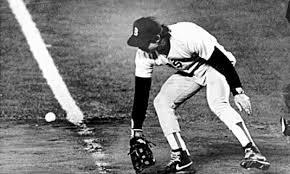Baseball History Comes Alive Now Ranked #2 by Feedspot Among All Internet Baseball History Websites and Blogs!
Guest Submissions from Our Readers Always Welcome!
Scroll Down to Read Today’s Essay
Subscribe to Baseball History Comes Alive for automatic updates. As a Free Bonus, you’ll get instant access to my Special Report: Gary’s Handy Dandy World Series Reference Guide!
Today Vince Jankoski returns with his last installment on “Baseball Goats.” Most of us remember Bill Buckner’s error in Game Six of the 1986 World Series (see featured photo above). But as Vince relates, while Buckner was largely blamed for the loss, there was plenty of blame to go around, especially from the Red Sox bullpen. I think you’ll enjoy Vince’s essay. -GL
More On “Baseball Goats”: Contemporary Goats
Goats continue to enliven the game of baseball and provide fodder for speculators of what would have been. Consider the following more contemporary goats:
Mike Andrews, the “Almost Goat”

In the fall of 1973, Mike Andrews, at the tail end of his rather non-descript career, found himself a member of the pennant-winning Oakland A’s. Earlier in his career, he was the regular second baseman for the Red Sox and White Sox. However, by the early 1970s his batting average slipped to the .200 vicinity, and he was released by the White Sox who had acquired him from the Red Sox for Luis Aparicio. Go figure. Andrews flopped and was released. At the request of Andrews’ former Red Sox manager Dick Williams, Oakland signed Andrews in time for their successful late-season run at the pennant. During this time, Andrews backed up starter Dick Green at second base.
Andrews appeared twice as a pinch hitter in the ALCS, going 0-1 with a sacrifice. In Game Two of the World Series, Andrews made errors on two successive batters, allowing three Mets runners to score in a 10-7 New York win. Incensed, owner Charlie Finley ordered Andrews to execute an affidavit falsely claiming that he was injured, thereby permitting Finley to replace Andrews on the World Series roster. Commissioner Bowie Kuhn would have none of it, and ordered Andrews reinstated. Andrews grounded out as a pinch hitter in Game Four and was promptly benched by Finley for the rest of the Series. It would be Andrews last MLB game.
Andrews played for eight seasons. His best year was 1969 when he hit .293 and made the All-Star team. Notwithstanding Andrews’ Game Two errors, Oakland won the Series 4 games to 3. So, despite his major role in the Game Two loss, Mike Andrews avoided the goat designation. He is an “almost goat.”
Bill Buckner, the “Shared Goat,” Part I
Bill Buckner was a good ballplayer. Unfortunately, Buckner is most remembered for a ground ball hit by Mookie Wilson in Game Six of the 1986 World Series.

By 1986 Boston had gone 68 years without a world championship, a direct result of the “Curse of the Bambino,” a plague sent to Boston by the baseball gods to punish the Red Sox for selling Babe Ruth to the Yankees. However, in that year’s World Series, the Sox led the Mets 3 games to 2 and led 5-3 with two outs in the bottom of the tenth inning of Game Six. Consecutive singles by Gary Carter, Kevin Mitchell, and Ray Knight off Calvin Schiraldi brought the Mets to within one. Bob Stanley replaced Schiraldi, and promptly wild-pitched the tying run (Mitchell) home with Knight advancing into scoring position at second base. Wilson came to bat and hit a routine ground ball directly at Buckner who let the ball go through his legs, allowing Knight to score the winning run.
The Sox led 3-0 in Game Seven, but couldn’t hold the lead. They lost the Series 4 games to 3. Had Buckner fielded the routine grounder and touched first base, the Sox would have won the Series in six games. They would not break the Curse of the Bambino until 2004, a drought of 86 years.
In Defense of Buckner

He never should have been in the game. Buckner suffered from bad ankles. During the season, he would generally be lifted in favor of Dave Stapleton as a defensive replacement in late innings. Boston leading 5-3 in the bottom of the tenth inning called for Buckner to be replaced by Stapleton, but manager John McNamara didn’t make the switch.
Buckner was solid. He played for 22 seasons, amassing a career batting average of .289 while hitting 174 home runs and knocking in 1,208 RBIs. He finished tenth in the MVP balloting in successive years, 1981-1982. He led the league in batting average once and in doubles twice. He batted over .300 seven times, and drove in more than 100 runs three times. He hit safely 2,715 times. Not a Hall of Famer, but a good solid ballplayer you would like to have on your team. He is the most unfortunate of goats.
The 1986 Boston Bullpen, the “Shared Goat,” Part II
The Red Sox won the first two games of the 1986 World Series and led 3-2 in games going into Game Six. As noted above, Calvin Schiraldi and Bob Stanley could not hold a two run lead with two outs in the tenth, necessitating a seventh game.

In Game Seven, the teams were tied at three runs apiece as the bottom of the seventh inning began. The Boston bull pen struck again. Schiraldi was brought in to start the inning. He promptly gave up a go ahead home run to Ray Knight. Lenny Dykstra followed with a single, and Shiraldi uncorked a wild pitch, advancing Dykstra to second. Rafael Santana singled home Dykstra. Pitcher Roger McDowell sacrificed Santana to second.
Having had enough of Schiraldi, McNamara went to Jose Sambito to replace Schiraldi. Sambito was no more successful. He walked Mookie Wilson (intentionally) and Wally Backman (unintentionally). Keith Hernandez hit a sac fly, scoring Santana. Sambito was finished, replaced by Bob Stanley who finally got the side out, but not before the Mets scored 3 runs to take the lead.
But the Sox batters were not through. They scored two runs in the top of the eighth to close to within one run. But the bull pen was not through either. Al Nipper gave up two runs in the bottom of the eighth to put the game out of reach. The final score was 8-5.

Buckner got the eternal scorn of Red Sox fans for his error in Game Six, but the Boston bull pen (collectively at least) shared the horns. Schiraldi, after getting the first two batters out in the tenth inning of Game Six, couldn’t finish off the Mets, putting the tying and winning runs on base. Stanley fared no better, allowing the tying run to reach scoring position. It was also Schiraldi who in Game Seven gave up three earned runs in a tie game, facing only four batters in the bottom of the seventh inning and Jose Sambito and Al Nipper who put the game out of reach, allowing the Mets to win Game Seven.
Buckner gets the blame, but there is sufficient blame to go around.
Vince Jankoski
Subscribe to our website, Baseball History Comes Alive with over 1400 fully categorized baseball essays and photo galleries, now surpassing the one million hits mark with over 1,183,000 hits and over 950 subscribers: https://wp.me/P7a04E-2he

